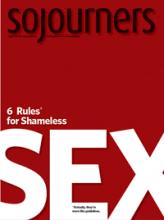Jesuit theologian Carlos Bravo labels the next four weeks “crisis and confirmation”—Jesus’ insistence on extending God’s love and mercy to the poor has put him on a collision course with the religious establishment and the oppressive Roman state. Far from a divine being, aware of his fate and mission from day one, Bravo understands Jesus to be profoundly human and struggling to faithfully live God’s reign in the face of increasing hostility. Jesus’ choices simultaneously confirm his violent fate and his identity as God incarnate, who will, through death and resurrection, offer each of us everlasting life.
Jesus faces resistance not only from social and religious leaders, but from his own disciples. Though able to confess that Jesus is the “messiah,” the disciples’ understanding of the title is the opposite of what Jesus teaches and lives. Jesus must insist again and again that his destination is not traditional kingship, but suffering, rejection, and, ultimately, death. Only through this path can he show that God’s love for us is real and triumphant over death. Over and over Jesus must explain kingdom values, as opposed to human values that prioritize power, status, and exclusivity. He must insist that the mission is not to be served, but to serve; not to be first, but to be last. And not to limit the scope of God’s work or love: Those who bring light and love in Jesus’ name are to be supported, not condemned, for “Whoever is not against us is for us” (Mark 9:40).
Michaela Bruzzese, a Sojourners contributing writer, lives in Brooklyn, New York.
September 6
Faith Into Action
Proverbs 22:1-2, 8-9, 22-23; Psalm 124; James 2:1-17; Mark 7:24-37
Read the Full Article
